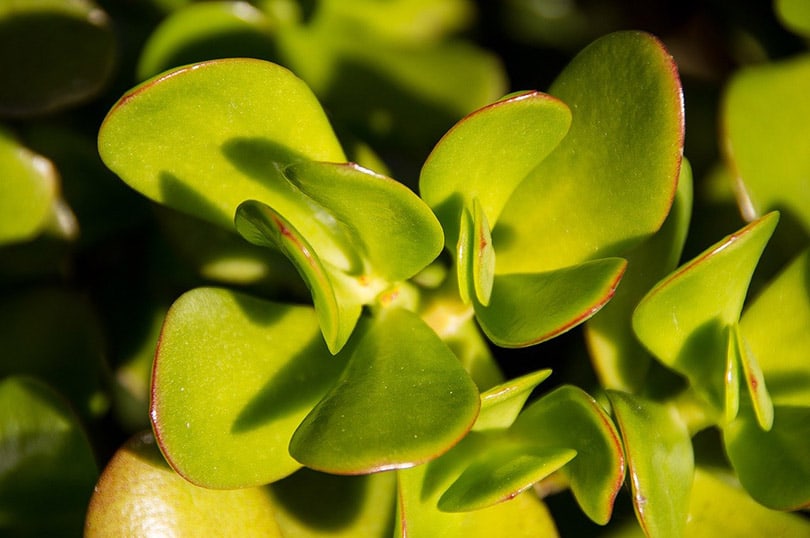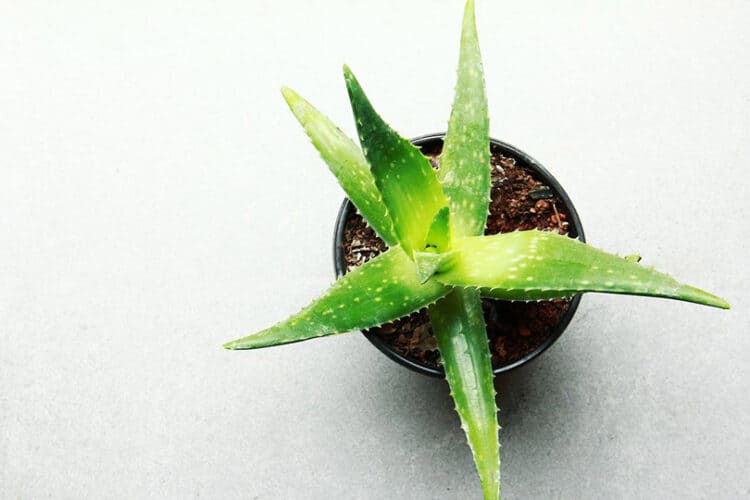Succulents make a great addition to gardens or as house plants and come in a range of different colors, textures, shapes, and sizes. The beauty of the succulent plant is becoming more popular amongst pet owners, however, certain species are poisonous to dogs and can cause mildly fatal poisoning in dogs if ingested.
Whether you are a succulent lover that wants to know whether it is safe to grow these beautiful plants alongside your canine companion, or your dog has recently eaten a succulent and you want to know whether they are poisonous, then this article has all the answers for you!
Are Succulents Poisonous To Dogs?
Yes, some varieties of succulents are poisonous to dogs and if ingested can cause various worrisome symptoms. Dogs rarely die from succulent poisoning, though, and the type of succulents they eat plays a role in the symptoms your dog will experience.
Succulents in the euphorbia genus are poisonous to cats and dogs and some succulents are more potent than others. This is due to the toxic sap that is found in the leaves of these fleshy plants.
The substance known as aloin pulls extra water into your dog’s colon and can cause major discomfort. Dr. Elizabeth Muirhead, a veterinarian studying biological sciences based in Virginia Beach, says, “Most succulents are non-toxic to our pets, but we can see that some are poisonous.” She also states that components known as saponins are toxic to canines and can cause gastrointestinal signs such as vomiting and lethargy.
Some succulents can also have sharp leaves that can injure your dog’s mouth, while the saponins in the fleshy leaves can irritate your dog’s sensitive tongue, mouth, eyes, skin, and gastrointestinal tract.

Succulents That Are Poisonous To Dogs
These are a few of the different succulent varieties that can potentially cause poisoning symptoms in your dog, especially if the plant is ingested in large quantities:
| Succulent Type: | Scientific Name: | Plant Description: | Symptoms: |
| String Of Pearls | Senecio rowleyanus | Small, pea-like leaves growing from the stem | Excessive drooling, vomiting, weakness, skin irritation, and swelling |
| Jade Plant | Crassula Ovata | Thick and shiny fleshy leaves | Disorientation, lethargy |
| Aloe Plant | Aloe Vera | long-stemmed, green fleshy leaves | Red urine, vomiting, diarrhea, appetite changes |
| Spurge | Euphorbia spp. | Yellow, purple, reddish leaf bracts | Vomiting, gastro upset |
| Pencil Cactus | Euphorbia tirucalli | Tall and slender with white sap from fleshy leaves | Vomiting and diarrhea |
| Mother Of Millions | Kalanchoe Delagoensis | Long creeping leaf tendrils that bunch together on a single stem | Abnormal heart rhythm, vomiting, diarrhea, lethargy, and fatal causes lead to death |
| Panda Plant | Philodendron Bipennfolium | Fuzzy short leaves | Difficulty swallowing, facial swelling, vomiting |
| Sago Palm | Cycas Revoluta | Palm tree-like leaves | Vomiting, increased thirst, and urination, liver failure |
| Mother Of Thousands | Kalanchoe Daigremontiana | Big green leaves ending with plantlets | Vomiting, diarrhea, abnormal heartbeat, tremors, seizures |
| Snake Plant | Sansevieria Trifasciata | Swordlike leaves with yellow edges | Vomiting, diarrhea, upset stomach |

What Happens If Your Dog Eats Poisonous Succulents?
Kalanchoe succulents seem to have the most severe health effects on dogs and can cause an abnormal heartbeat, seizures, and disorientation if ingested in large quantities. Some other species such as the Sago’s palm can cause liver problems, whereas other species usually cause mild reactions such as vomiting and diarrhea due to discomfort in their gastrointestinal tract. Symptoms can range from mild vomiting and swelling in the facial region, to more severe symptoms like seizures, increased thirst, liver issues, and eventually death.
The factors that contribute to how your dog will react to the ingestion of certain succulents will depend on how much they eat, the species, and their body weight.
Important: If your dog has eaten a succulent or any other poisonous and toxic plant on the ASPCA’s list, then you must take them to the veterinarian immediately along with a sample of the plant so that treatment and diagnosis can be administrated promptly, even if your dog is not showing any symptoms.
Final Thoughts
If you share a love for both succulents and dogs, then it is important to ensure that the types of succulents you grow are safe if your dog was to accidentally ingest them. Echeveria is one of the most popular types of succulents that are easy to grow, non-toxic, and can be grown in the same environment as dogs.
If you suspect that your dog has eaten a succulent, do not hesitate to take them to the veterinarian, it is better to be safe than sorry!
Featured Image Credit: Pixabay














